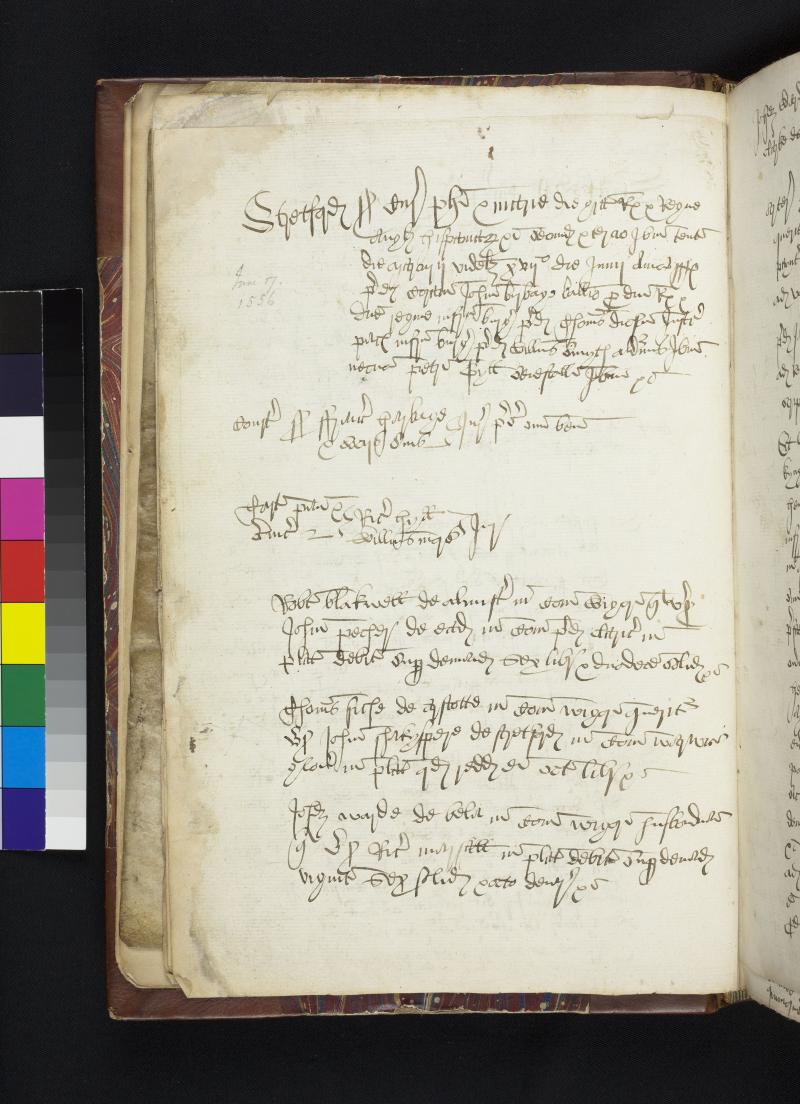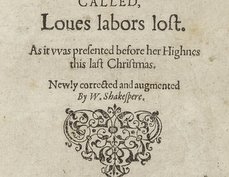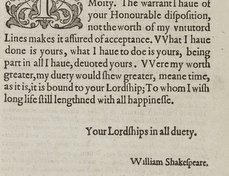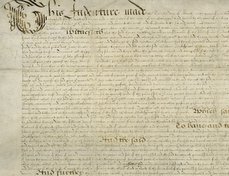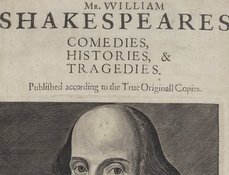Reproduced by permission of Shakespeare Birthplace Trust
Terms of use
The Shakespeare Birthplace Trust has graciously contributed images under a Creative Commons Attribution NonCommerical ShareAlike 4.0 International license. Visitors may download, link to and cite the images for personal research only. Any further use, including, but not limited to, unauthorized downloading or distribution of the images, commercial or third party use, is strictly prohibited. Visitors must contact the Shakespeare Birthplace Trust to request additional use, at: images.scla@shakespeare.org.uk
Document-specific information
Title: Stratford-upon-Avon Borough: Court of Record: Proceedings
Date: June 17, 1556
Repository: Shakespeare Birthplace Trust, Stratford-upon-Avon, UK
Call number and opening: BRU12/1, fol. 3v
View online bibliographic record
On June 17, 1556, Thomas Such brought a case against John Shakespeare in Stratford’s court of record for the recovery of £8. The entry, originally in Latin, reads: “Thomas Siche [Such] of Arscotte [Armscote], in the county of Worcester, complains against John Shakyspere of Stretforde, in the county of Warwick, glover, in a plea that he return him £8.” Thomas Such was a husbandman (in todays’s parlance, a farmer of a modest landholding) of Armscote, then in Worcestershire, a hamlet about seven miles south of Stratford-upon-Avon. The entry does not explain how John Shakespeare had become indebted in this substantial sum. However, following three subsequent hearings, on July 15, July 29, and August 12, 1556 (all recorded in the same register, BRU 12/1 (i), ff. 6, 7, 8v), the case was dismissed and John awarded expenses on the grounds that Such, in the words of the court, again in Latin, “did not complete the action he embarked on” (quia non protulit accionem que habuit).
Stratford’s court of record, set up under the town’s 1553 charter of incorporation, sat fortnightly (every two weeks) to hear civil claims to the value of £30. The intention was to stimulate commerce by providing local people with a means of settling business disputes quickly. The main record, as shown here, was a register of its proceedings, in Latin.
John featured in the same register on several subsequent occasions, evidence of his burgeoning business interests. Of particular significance here is his description for the first time as a glover, or a maker of gloves. This has been taken to imply that John had served out a formal apprenticeship in the town of the customary seven years, from at least 1548. John is styled a glover on two further occasions (in 1570 and 1586) but is also styled under various other trades on other occasions. He is called a yeoman four times in 1575, 1579, 1580, and 1597, an agricola (best translated here as “husbandman,” a farmer of modest circumstances) once in 1561, and a whittawer (a worker in white leather) once in 1573. Moreover, evidence from at least 1572 establishes that he was clearly involved in wide-scale wool-dealing, an ancillary but highly profitable activity pursued by many glovers. Later in 1556, he brought a case to the court of record against Henry Field “that he return 18 quarters of barley which he unjustly detains from him” (BRU 12/1 (i), f. 18), indicating that even by then he had other business interests.
Before the Statute of Artificers of 1563 sought to regulate the engagement of apprentices, there was much irregularity. Until 1568, there is no evidence in Stratford of the existence of craft guilds under the Corporation’s supervision. Before Stratford received its charter of incorporation in 1553 there would have been no body to oversee their operations. John’s apprenticeship therefore may not have been as structured as it would have been if served out later.
Edit: based upon a reevaluation of evidence, the references to John Shakespeare as a glover have been clarified and linked to the related documents
[In the hand of Richard Symons, the town steward, from the first surviving register of the court of record.]
Stratford: The court held there on Wednesday, the 17th June before John Burbage, bailiff, Thomas Dixon, Justice of the Peace, William Smith, alderman, and also Peter Gill, steward etc.
Constables: Francis Harbidge and colleagues: sworn as present, all well.
Tasters of bread and ale: Richard Hill, William Mors, sworn
Robert Blackwell of Alderminster complains against John Peachey of the same, clergyman, in a plea of debt on demand, £6 12s.
Thomas Such of Armscote complains against John Shakespeare of Stratford, glover, in a plea that he return to him £8 10s.
John Ward of Beoley, husbandman, complains against Richard Marshall in a plea of debt on demand, 26s. 8d.
[In the hand of Richard Symons, the town steward, from the first surviving register of the court of record.]
Stretford
Curia Philippi & Marie die [sic] gracia Regis & Regine
Anglie, Hispaniarum &c Secondo & tercio ibidem tenta
die Marcurii videlicet xvijo die Iunii annorum regnorum
predictorum Coram Iohanne Burbage ballivo pro domino Rege &
domine regine infra burgum predictum Thomas Dicson Iusticiarius
pacis infra burgum predictum Willelmus Smyth aldermannus Ibidem
necnon Petrus Gyll Senescallus Ibidem &c.
Constabularii
Franciscus Harbige & sociis suis
Iurati presentes omnis bene
Tastores panis & ceruicie
Ricardus Hyll Willelmus Mors Iurati
Robertus Blakwell de Almi[n]ster in Comitatu Wigorn' queritur versus
Iohannem Pecher de eadem in Comitatu predicto claricum in
placito debiti super demandam sex librarum & duodecem solidorum &c
Thomas siche de Arscotte in Comitatu Wigorn' queritur
versus Iohannem Shakyspere de Stretford in Comitatu Warwic'
glouer in placito quod reddet ei octo libras &c
Iohannes Warde de Bela in Comitatu Wigorn' husbondman
queritur versus Ricardum Mars[h]all in placito debiti super demandam
viginti sex solidorum & octo denariorum &c
Written by Robert Bearman.
Last updated June 22, 2023

